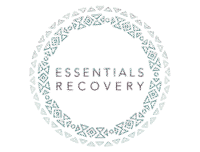Though they are a remarkably powerful source of pain relief, opioids can come with a sense of unease about them. They can be a highly addictive substance, which should come as no surprise considering that meth is a part of the opioid family. It can be a little nerve-wracking to be prescribed opioids after surgery, which is completely understandable considering that we are in the middle of what is being dubbed an opioid crisis.
It is okay to have these questions and concerns. It seems like the threat of opioids is omnipresent, even if you treat them with the utmost care. However, while there are a lot of concerns surrounding this family of drugs, it all circles back to one particular set of questions. What are the chances of it happening to me? How can I tell if I become addicted, or will I even care? What happens if I do get addicted? Will I have support to beat the addiction?
What Is The Chance The I Get Addicted To Opioids After Surgery?
Opioids are more commonly prescribed as pain relievers than one might realize and include known drugs such as oxycodone, hydrocodone, codeine, and morphine. However, due to the nature of the opioid family, this doesn’t lessen the chances of one becoming addicted to them. In fact, there is a really large chance that you will become addicted to opioids.
Though opioids are generally safe when taken for a short period as prescribed by a doctor, they can easily become misused. Since opioids work by affecting the opioid receptors on nerve cells in the brain and body, the addictive effects of the drug can be incredibly seductive and affect even the strongest of resolves if left unchecked.
What Are Some Reasons Behind Opioid Addiction?
Despite being used primarily as pain relief, opioids also produce feelings of euphoria in users. It is this sense of euphoria that can start the slide into abusing opioids, which can range from taking them without a doctor\’s prescription, taking them in much larger dosages than prescribed, or taking them in a manner other than instructed. Your body may be your worst enemy when it comes to taking opioids because it might become convinced on its own that survival without the drug is impossible. Opioids are a drug that will quickly make it feel like you have little other choice or desire other than chasing the high that they bring.
Withdrawals from opioids may include a variety of symptoms, with perhaps the most obvious possibility being drug cravings. Aside from that, the user might find themselves suffering from insomnia, anxiety, irritability, vomiting, abdominal pain, tremors, feeling cold, or diarrhea. Users might experience one, all, or a mix of these symptoms once withdrawal settles in. Typically, the symptoms will only last three to five days. If a user should relapse, they may find themselves at a higher chance of overdosing, due to their tolerance levels decreasing.
Is There Support If I Do Get Addicted?
When you or a loved one is suffering from opioid addiction, you may feel completely alone and unable to find any support or help. That couldn\’t be further from the truth. Starting with those that care the most about the user noticing the symptoms of addiction and finding a way to address the addicted party, to numerous programs that are dedicated not only to getting clean but staying that way, those who suffer from addiction can better find their legs and their path to being clean and living healthier.
There are now drugs that can help bring users back from an overdose, which means that there are higher chances for recovering from addiction. There are also a variety of programs in place now designed to specifically cater to recovering from opioid addiction. Help is available to get you through the worst of going clean and to support you as you continue to maintain a state of sobriety going forward. Getting and staying sober is a constant process, so the use of support groups and consistent communication are key in freeing yourself from any addiction, especially and including opioids.
Though the chances of becoming addicted to opioids are extremely high, you shouldn\’t let that get in the way of receiving the best medical treatment available. When used with restraint and within the rules of a prescribing physician, they can be an excellent painkiller that will help you to stay comfortable after surgery. When treated with respect, opioids are just another useful healthcare tool. Call now at 855-509-1697. We can help.

